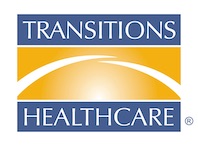Transitions Healthcare Washington PA Implements New Methodology with the Therapeutic Programs Department

Transitions Healthcare Washington PA has taken a significant step forward in enhancing resident care by transforming its Activities Department into the Therapeutic Programs Department. This change is more than just a renaming – it is a shift of how the facility approaches resident engagement, promoting physical, cognitive, and emotional wellbeing through a comprehensive, holistic methodology.
The Therapeutic Programs Department offers a variety of group programming and one-on-one in-room visits aimed at helping residents reach their highest level of functioning. The program focuses on four key domains: physical, cognitive, affective, and social. These domains are critical for improving not only the physical health of residents, but also their cognitive abilities, emotional stability, and social interactions.
According to Garnett Henderson, CTRS/BSR, who became a Certified Therapeutic Recreation Specialist in 1996 and is the Therapeutic Programs Director, “Transforming to Therapeutic Programs is not just a name change—it’s a methodology to improve our residents’ quality of life”. The programs in this department are tailored to each resident’s abilities, with modifications and adaptations to ensure everyone, regardless of physical limitations, can participate. Those who are unable to walk are encouraged to self-propel, while others engage in activities that enhance their range of motion, strength, and endurance.
Residents like Barb, who was admitted in May of 2024, exemplify the success of this approach. Once reliant on a wheelchair, Barb is now able to walk independently to participate in the programming, a source of immense pride for her. This triumph highlights the key objective of the Therapeutic Programs Department: to turn recreation into a tool for functional improvement.
The benefits of this approach also extend to mental well-being. Residents are encouraged to enhance their cognitive skills through crafts, puzzles, and problem-solving games, which promote memory retention and informed decision-making. “It’s not just activity, but programming with a greater purpose – function with fun!”, Henderson explains. This approach is designed to keep residents engaged and focused on improving their own personal outcomes.
Moreover, the program’s social aspect cannot be overlooked. Couples like George and June, who work together to regain their mobility and independence, have found not only physical benefits, but emotional and relational strength through their participation. June, who was initially transported around in her wheelchair, now encouraged, and aided by the Therapeutic Programs staff, walks to the dining hall and participates in group programming, encourages her husband to do the same, demonstrating the program’s far-reaching impact on the well-being of its residents.
By adopting this new model, Transitions Healthcare Washington PA is reinforcing its commitment to resident health, well-being, and overall quality of life. The transformation to the Therapeutic Programs Department signals a new chapter in delivering personalized, results-driven care that nurtures residents physically, mentally, socially, and emotionally.
